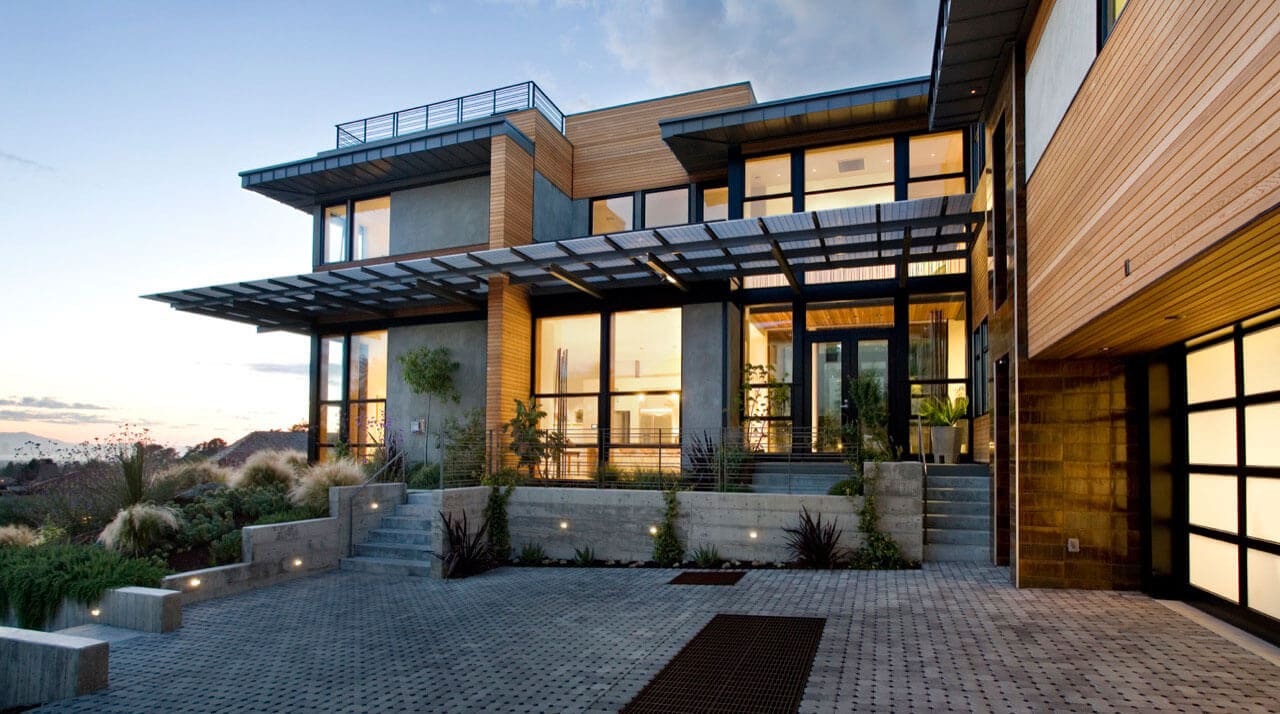The 23rd World Insights
Exploring the untold stories and events from around the globe.
Save Money and the Planet: How to Build an Energy-Efficient Home Without Breaking a Sweat
Discover effortless tips to build an energy-efficient home that saves you money and protects the planet. Start your eco-friendly journey today!
Top 10 Energy-Efficient Features to Include in Your New Home
When building a new home, incorporating energy-efficient features is not just beneficial for the environment; it also significantly reduces long-term utility costs. Here are the top 10 energy-efficient features to consider for your new home:
- High-Performance Insulation: Invest in cool or climate-appropriate insulation materials to keep your home comfortable year-round.
- Energy-Efficient Windows: Installing double or triple-glazed windows reduces heat loss during winter and keeps your home cooler during summer.
- Smart Thermostats: These devices manage your heating and cooling more efficiently by learning your habits.
- Solar Panels: Harnessing solar energy not only lowers your electricity bills but can also make your home more attractive to future buyers.
- Energy Star Appliances: Choose appliances with the Energy Star label, which signifies that they meet strict efficiency guidelines.
Continuing with energy-efficient features, consider these additional elements:
- LED Lighting: Switch to LED bulbs that consume far less energy than traditional incandescent bulbs.
- Low-Flow Fixtures: Install low-flow faucets and showerheads to conserve water without sacrificing performance.
- Energy-Efficient Heating and Cooling Systems: Opt for systems with high Seasonal Energy Efficiency Ratios (SEER) and Energy Efficiency Ratios (EER).
- Smart Home Technology: Implementing smart technology helps to optimize energy usage throughout your home.
- Proper Ventilation: Ensure your home has a good ventilation system to maintain air quality and temperature.

How to Reduce Your Energy Bills: Simple Upgrades for Every Homeowner
Reducing your energy bills doesn't have to be complicated or expensive. Simple upgrades around your home can lead to **significant savings** on monthly costs. Start by evaluating your home's insulation. Proper insulation helps maintain a consistent indoor temperature, reducing the need for excessive heating or cooling. You can also consider weatherstripping doors and windows to eliminate drafts, further enhancing your home's energy efficiency. According to studies, homeowners who invest in adequate insulation and sealing can save up to 20% on energy costs.
Another effective way to cut down on energy bills is by replacing outdated appliances with energy-efficient models. Look for products labeled with the **Energy Star** rating and focus on essential appliances such as refrigerators, washing machines, and HVAC systems. Not only do these upgrades reduce energy consumption, but they also often come with rebates and incentives. Additionally, consider using smart home technology like programmable thermostats and energy monitoring systems to track and optimize your energy use. Making these simple changes can lead to a more sustainable home and a noticeable reduction in your energy expenses.
Is Building an Energy-Efficient Home Worth It? Here's What You Need to Know
Building an energy-efficient home is a significant investment, but it often pays off in both short-term savings and long-term sustainability. By integrating energy-efficient appliances, proper insulation, and renewable energy sources like solar panels, homeowners can drastically reduce their utility bills. In fact, studies show that energy-efficient homes can save up to 30% on energy costs annually. Additionally, many local and federal programs offer incentives and rebates for energy-efficient construction, making it more affordable for builders and buyers alike.
Beyond cost savings, an energy-efficient home contributes positively to the environment by reducing carbon footprints. These homes typically use less energy, thus lowering greenhouse gas emissions. A well-constructed energy-efficient home can also increase in value over time, making it not just a place to live but a smart financial investment. Homebuyers are increasingly prioritizing sustainability in their purchasing decisions, meaning that energy efficiency could enhance your home's marketability. Therefore, while the initial costs might be higher, the long-term benefits make building an energy-efficient home a worthwhile consideration.